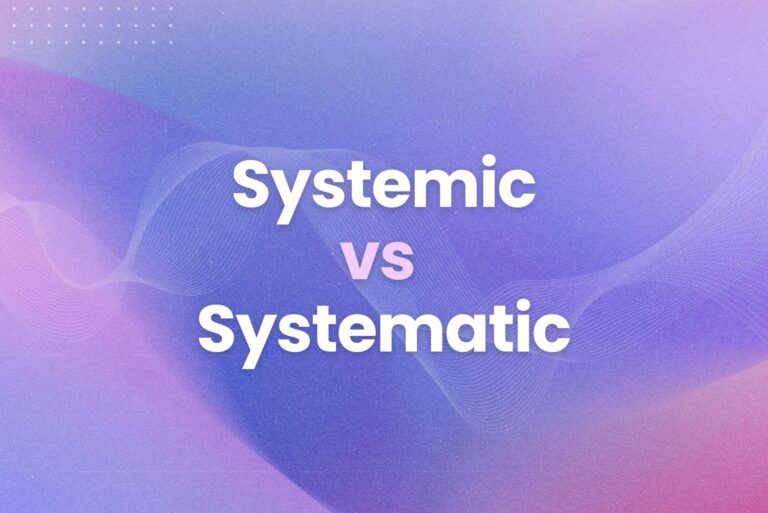Stationery vs Stationary: What’s The Difference?
The English language has been evolving for a long time. And as a result it is full of words known as homophones. This means two words that sound the same when spoken aloud, but that are written differently and have different meanings. Among the most common and confusing homophones in English are stationery vs stationary. So if you’ve found yourself unsure about whether you should use the word ‘stationary’ or ‘stationery’ in your writing, you are not alone.
In fact, these homophones are so baffling that many people aren’t even aware that these two words have different spellings. According to Professor Paul Brians at Washington State University, the misuse of stationery vs stationary is among the most frequent grammatical mistakes in the English language.
The Key Differences between Stationery vs Stationary
There are several important differences between ‘stationery’ and ‘stationary’. This includes their meanings, and how they are used in a sentence. ‘Stationery’ is a noun that refers to paper and things that you might write with. ‘Stationary’ is an adjective meaning something that stays still or doesn’t change:
Stationery
Word class: Noun
Definition: Writing materials and office supplies
Examples:
- The pens and paper are kept in the stationery cupboard.
- Jenna was writing on pink stationery.
Stationary
Word class: Adjective
Definition: Not moving or not changing
Examples:
- I waited for the bus to be stationary before boarding.
- Last year, the population of the zoo was stationary.
So, in summary, ‘stationery’ is a noun, meaning it is the name of an object. In this case, stationery is a collective noun (referring to a group of things). It can include pens, pencils, paper, exercise books. Sometimes, a stationery cupboard would contain other office materials like paper clips, staples, and hole punches too.
‘Stationary’, on the other hand, is an adjective, meaning a word that is used to describe an object. Usually, it will be used to describe something that is not moving, or staying completely still.
Example:
- I went shopping for new school stationery. ✔
This would be correct. Because stationery is spelled with the ‘er’ and the correct form of the word is being used to name an object, or a group of objects.
- My new stationary is color coordinated. ✘
This is incorrect. Because the writer has used the ‘ar’ form, which is an adjective, whereas they are using the word to name an object.
- The traffic on my route was stationary. ✔
This is correct. They are using the adjectival ‘ar’ form of stationary to describe the traffic.
- The room was full of stationery robots. ✘
This is incorrect. The writer is trying to describe the robots as staying completely still. But he has used the ‘er’ noun form of the word.
Why do ‘Stationery’ and ‘Stationary’ Sound the Same?
While you will find that you pronounce stationery vs stationary the same as one another, the way in which you say them is dependent on your accent. According to the Oxford English Dictionary, the two words are pronounced ‘STAY-shuhn-uh-ree’ in British English, or ‘STAY-shuh-nair-ee’ in US English.
In both variants, the first syllable ‘STAY’ is emphasised, but the vowel sound in the third syllable is voiced a little differently.
The reason that the two words sound the same is because they are homophones. We have so many homophones in English because of the way that our language has evolved over time. While two words may not have been pronounced the same hundreds of years ago, over time gradual changes to our accents and dialects have caused the two words to merge in their sound, but not in their meaning.
Where do the Words ‘Stationery’ and ‘Stationary’ Come from?
While stationery vs stationary have been commonly used words for a long time, the adjective ‘stationary’ is much older than the noun ‘stationery’.
According to the Oxford English Dictionary, ‘stationary’ is derived from Middle English, with its first known use in around the year 1450. This word was borrowed from the Latin statiōnārius, meaning a standing place.
Meanwhile ‘stationery’ was first used in 1727. This noun derives from the English word stationer, which was first used in 1311 and meant someone who made books.
Over time – like all words do – the two terms have altered their meanings and pronunciations a little. For example, ‘stationary’ now means anything that is staying still, or an otherwise fixed point, rather than just a place where an officer stands. Similarly, while ‘stationer’ still does in some way encompass books, usually a person selling office supplies and letter writing materials is referred to as a ‘stationer’, whilst the things they sell are ‘stationery’.
How to Remember whether to Use ‘Stationery’ or ‘Stationary’
When it comes to remembering the difference between these two words, the Merriam-Webster Online Dictionary offers a surprisingly easy trick. Remembering the ‘er’ in ‘paper’ or ‘letter’ can help you to correctly choose ‘stationery’. So if you are talking about stillness, rather than pens and paper, ‘stationary’ (without the ‘er’) is what you’re looking for.
While there’s no shame in getting these two words mixed up, it really pays to get your grammar right. Whether you’re writing a CV, an article, an email, or even a letter to a friend, it’s important to make sure that your spelling is accurate, to avoid misunderstandings or coming across unprofessional.
If you find the difference between stationery vs stationary hard to remember, or you are overwhelmed with the thousands of homophones in the English language, you can be thankful that we’re in the twenty-first century. While our predecessors had to consult dictionaries, we have AI tools that can help you get your spelling and grammar up to scratch. Arvin’s grammar function can check your writing in seconds, to make sure that everything you write is at the highest standard.

Frequently Asked Questions
If you mean something that is staying still, it is ‘stationary’. On the other hand, if you mean pens, paper, or other office supplies, you are looking for ‘stationery’.
One quick way is to remember that the pens and paper kind of ‘stationery’ ends in the same ‘-er’ as ‘paper’.
If you’re ever in doubt about these, or other homophones, you can easily use Arvin AI’s grammar function to check your work in seconds.
Your reader could probably figure out your intended meaning if you choose the wrong form of the word. It is likely to cause complications including misunderstandings. In addition, your hard work may come across as unprofessional or unnecessarily confusing.
So it’s important to get on top of the rules and conventions around all kinds of grammatical rules. And with homophones being just one of these.
Alternatively, AI Writing Tools can really be your best friend here. And if you’re multilingual and having to keep track of multiple different grammar rules, Arvin has a range of grammar checkers. Arvin includes Spanish, Chinese, French, and Korean. while if you’ve got writer’s block, the AI Writing Generator is on hand to help out.





